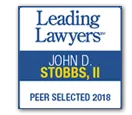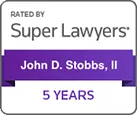When it comes to self-defense, Illinois law is designed to protect you when you’re acting to defend yourself, your loved ones, or your home. But knowing exactly where the line is between legal self-defense and excessive force can be confusing—especially here in Madison County, where interpretations can vary. As someone who’s defended clients in Edwardsville for years, I know how critical it is to understand your rights. In this article, I’ll break down when self-defense is justified and how we can help protect you if you’re ever facing charges for protecting yourself.
What Constitutes Legal Self-Defense in Illinois?
In Illinois, self-defense laws give you the right to use force when you reasonably believe it’s necessary to prevent harm to yourself or someone else. This is outlined in 720 ILCS 5/7-1, which states:
(720 ILCS 5/7-1) (from Ch. 38, par. 7-1)
Sec. 7-1. Use of force in defense of person.
(a) A person is justified in the use of force against another when and to the extent that he reasonably believes that such conduct is necessary to defend himself or another against such other’s imminent use of unlawful force. However, he is justified in the use of force which is intended or likely to cause death or great bodily harm only if he reasonably believes that such force is necessary to prevent imminent death or great bodily harm to himself or another, or the commission of a forcible felony.
(b) In no case shall any act involving the use of force justified under this Section give rise to any claim or liability brought by or on behalf of any person acting within the definition of “aggressor” set forth in Section 7-4 of this Article, or the estate, spouse, or other family member of such a person, against the person or estate of the person using such justified force, unless the use of force involves willful or wanton misconduct.
(Source: P.A. 93-832, eff. 7-28-04.)
A notable case that clarifies the boundaries of self-defense in Illinois is People v. Lynch, 104 Ill. 2d 194 (1984). In this case, the defendant, Lynch, was convicted of voluntary manslaughter after fatally shooting an individual during an altercation. Lynch claimed he acted in self-defense, believing he was in imminent danger.
The Illinois Supreme Court emphasized that for a self-defense claim to be valid, the defendant’s belief in the necessity of using force must be reasonable under the circumstances. The court stated:
“Everything happened in an instant during which the defendant, according to his testimony, fell off a dresser while getting out his gun and firing it.”
This case underscores that while Illinois law permits the use of force in self-defense, the perceived threat must be immediate, and the response must be proportionate to that threat. An unreasonable belief or excessive force can negate a self-defense claim, leading to criminal liability.
Since the Lynch ruling, Illinois courts have continued to reference this standard. For example, People v. Bedoya, 288 Ill. App. 3d 226 (1997), cited Lynch when discussing the admissibility of a victim’s prior violent acts in self-defense cases. More recently, People v. Martinez, 2021 IL App (1st) 182553, upheld the principles of Lynch when examining the relevance of a victim’s past behavior in a self-defense claim.
These cases reinforce the importance of context—whether the use of force was proportional and whether the perceived threat was imminent. While courts continue to interpret self-defense law, the foundation established in Lynch remains intact.
Understanding how these precedents apply in Madison County is critical when building a defense. At Stobbs Law, we stay on top of the latest case law to ensure your rights are protected when you face charges after defending yourself.
Knowing the nuances of such precedents is crucial for anyone asserting self-defense in Illinois. At Stobbs Law, we have extensive experience navigating these complex legal standards to protect our clients’ rights effectively.
When Self-Defense May Cross the Legal Line
While Illinois law allows you to use force to protect yourself, there are clear limits to when self-defense is legally justified. The critical factor is whether the force used was reasonable and proportional to the threat you faced.
Under 720 ILCS 5/7-1, force intended or likely to cause death or great bodily harm is only justified if you reasonably believe it’s necessary to prevent imminent death, serious injury, or the commission of a forcible felony. But when force exceeds what’s necessary to stop the threat, it can cross the legal line into excessive force.
For example, if an unarmed person enters your home and you respond with deadly force without clear evidence of imminent danger, prosecutors may argue that the response was disproportionate. Similarly, continuing to use force after the threat has been neutralized, such as striking a subdued intruder, could result in criminal charges.
Courts in Madison County, including Edwardsville, closely examine several factors when determining whether self-defense was justified:
- Was the threat imminent? The danger must have been immediate and unavoidable.
- Was the level of force necessary? The response must match the severity of the threat.
- Could the threat have been avoided? Though Illinois law doesn’t impose a general duty to retreat in your own home, the situation matters.
Cases like People v. Lynch have shaped how Illinois courts interpret excessive force, emphasizing that context matters. If you find yourself facing charges for defending your home, having a defense team familiar with Madison County’s legal standards can make all the difference. At Stobbs Law, we know how to present these complex details effectively to protect your rights.
Real-World Examples from Madison County Cases
Understanding how self-defense laws are applied in real situations can provide valuable insight into the legal boundaries of using force. Here are some notable cases from Madison County that illustrate when self-defense was deemed justified and when it crossed the legal line:
Case 1: People v. Hill
In 2008, Nathaniel “P.J.” Hill of Edwardsville was convicted of first-degree murder after claiming self-defense in the beating death of Vincent Rollins. The court found that Hill’s actions exceeded the bounds of lawful self-defense, leading to his conviction.
Case 2: People v. Matthews
In 2021, Willie Matthews Jr. was acquitted of first-degree murder charges in the shooting death of Charles Cooper in Granite City. The jury concluded that Matthews acted in self-defense during the 2019 incident, resulting in a not guilty verdict.
These cases highlight the importance of context and proportionality in self-defense claims. Courts will closely examine factors such as the immediacy of the threat, the level of force used, and whether the response was necessary under the circumstances. At Stobbs Law, we have extensive experience navigating these complex legal standards to protect our clients’ rights effectively.
Legal Consequences of Excessive Force
While Illinois law allows for self-defense under 720 ILCS 5/7-1, using excessive force can lead to serious legal consequences. If the force used goes beyond what is necessary to prevent imminent harm, prosecutors in Madison County may pursue criminal charges—even when self-defense is initially claimed.
Potential Charges for Excessive Force:
- Aggravated Battery (720 ILCS 5/12-3.05): If serious bodily harm is caused during an altercation where the threat was minimal or no longer present.
- Manslaughter or Second-Degree Murder (720 ILCS 5/9-2): If deadly force is used when the threat did not justify it, such as shooting an unarmed individual when other options were available.
- Reckless Conduct (720 ILCS 5/12-5): If force is used in a way that endangers others beyond the immediate threat.
Key Factors Madison County Prosecutors Evaluate:
- Proportionality: Was the level of force necessary for the threat?
- Immediate Threat: Was the danger still present when force was used?
- Intent: Was the action defensive or retaliatory?
For example, in People v. Hill, the defendant’s use of excessive force during a physical altercation led to a conviction when the threat had already subsided. In contrast, People v. Matthews resulted in an acquittal because the use of deadly force was deemed necessary under the circumstances.
Civil Liability Risks:
Even if criminal charges are avoided, excessive force can lead to civil lawsuits from the injured party or their family, particularly if the force used was deemed avoidable or excessive.
At Stobbs Law, we know how prosecutors in Madison County approach these cases. Our focus is on clearly presenting the facts, emphasizing your right to protect yourself, and ensuring the court understands when the law is on your side. If you’re facing charges after defending yourself, we’re here to protect your rights and fight for the best possible outcome.
Defending Yourself with Stobbs Law
Facing criminal charges after defending yourself can feel overwhelming, especially when the law seems unclear. That’s where we come in. At Stobbs Law, I’ve spent years defending clients throughout Madison County, including Edwardsville, in complex self-defense cases. I know how the courts interpret Illinois self-defense laws and what it takes to build a strong legal defense.
When you hire me, you’re not getting passed off to a junior associate or paralegal—I’m personally involved in every aspect of your case. I’ll dig deep into the facts, examine whether the force you used was proportional to the threat, and challenge any attempts by the prosecution to portray your actions as excessive.
How We Build Your Defense:
- Establishing Reasonable Fear: We’ll demonstrate that you had a legitimate reason to fear imminent harm, aligning with 720 ILCS 5/7-1.
- Proportionality of Force: We’ll argue the force used was necessary given the threat you faced.
- Challenging Misinterpretations: If prosecutors attempt to twist the facts, we’ll present a clear narrative backed by evidence, witness statements, and expert opinions.
Self-defense cases can be won or lost based on the clarity of your side of the story. That’s why my approach is aggressive, detail-focused, and backed by a deep understanding of both the law and Madison County court procedures.
If you’re facing charges after defending yourself, don’t leave your future to chance. Contact Stobbs Law today—I’ll personally review your case and help you take the next steps to protect your rights.
Conclusion
Knowing your rights under Illinois self-defense laws is critical, especially here in Madison County where courts take a close look at whether the force used was reasonable and necessary. We’ve covered how Illinois law, specifically 720 ILCS 5/7-1, protects your right to defend yourself while also outlining the legal limits to avoid excessive force charges.
The key takeaway? Self-defense is your right—but the law requires that it be applied carefully. If you’re ever facing criminal charges after defending yourself, the facts matter. The right legal strategy can make all the difference in protecting your freedom.
At Stobbs Law, I’ve defended countless clients in Edwardsville and throughout Madison County in cases just like yours. I’m committed to making sure your side of the story is heard and your rights are fully protected. If you’re facing charges or just want to better understand how the law applies to you, reach out today. Let’s take the first step toward defending your future together.





